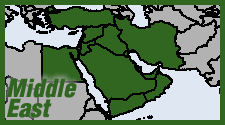 You think those international forces patroling the coast of Somalia are supposed to be protecting the sea lanes from pirates, right? Well, that's not all they're doing. In the latest operation completed on Oct. 6, an Australian frigate, the HMAS Toowoomba, backed up by a New Zealand search plane trailed a dhow—a type of sailboat traditionally used by Arab merchants— from the Arabian Sea to the Horn of Africa. After four days, the Australian crew was able to board the dhow, and a search turned up 5.59 metric tons of hashish. The operation was conducted under the command of Combined Task Force 150 (CTF-150), officially established to fight piracy. CTF-150 is part of the Combined Maritime Forces, which are also policing the waters of the Persian Gulf—ostensibly against terrorist infiltration, but far more often against hashish smuggling. The recent haul was its first successful counter-narcotics operation since Pakistan's navy took command of CTF-150 in August. Task Force head Commodore Sajid Mahmood said he was "incredibly proud" of the sailors and airmen involved in the bust. "CTF-150 has a long history of disrupting narcotics trafficking in the region," he enthused. "Keep up the good work!" (APNZ, Oct. 6)
You think those international forces patroling the coast of Somalia are supposed to be protecting the sea lanes from pirates, right? Well, that's not all they're doing. In the latest operation completed on Oct. 6, an Australian frigate, the HMAS Toowoomba, backed up by a New Zealand search plane trailed a dhow—a type of sailboat traditionally used by Arab merchants— from the Arabian Sea to the Horn of Africa. After four days, the Australian crew was able to board the dhow, and a search turned up 5.59 metric tons of hashish. The operation was conducted under the command of Combined Task Force 150 (CTF-150), officially established to fight piracy. CTF-150 is part of the Combined Maritime Forces, which are also policing the waters of the Persian Gulf—ostensibly against terrorist infiltration, but far more often against hashish smuggling. The recent haul was its first successful counter-narcotics operation since Pakistan's navy took command of CTF-150 in August. Task Force head Commodore Sajid Mahmood said he was "incredibly proud" of the sailors and airmen involved in the bust. "CTF-150 has a long history of disrupting narcotics trafficking in the region," he enthused. "Keep up the good work!" (APNZ, Oct. 6)
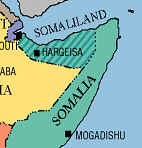 Here's a telling irony. We think of Somalia as a country that has basically had no functioning government for over a generation, and is beset by insurgents linked to al-Qaeda. Certainly, how a government treats a relatively harmless psychoactive herb is a good barometer of its general commitment to freedom. The herb in question here is khat, the mildly stimulating leaf that is chewed socially throughout the Horn of Africa. And we've noted how even the weak "official" government in Somalia has been cracking down on khat in a bid to appease the Shabaab insurgents.
Here's a telling irony. We think of Somalia as a country that has basically had no functioning government for over a generation, and is beset by insurgents linked to al-Qaeda. Certainly, how a government treats a relatively harmless psychoactive herb is a good barometer of its general commitment to freedom. The herb in question here is khat, the mildly stimulating leaf that is chewed socially throughout the Horn of Africa. And we've noted how even the weak "official" government in Somalia has been cracking down on khat in a bid to appease the Shabaab insurgents.
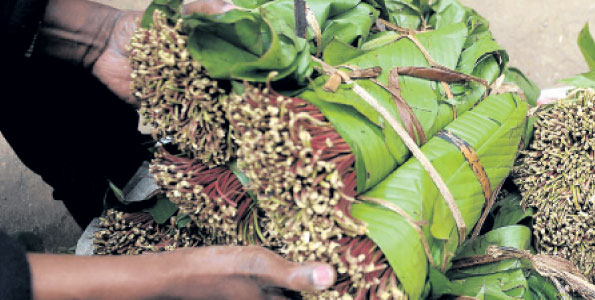 Somalia on Sept. 13 agreed to lift its recently imposed ban on imports of the mildly psychoactive leaf khat after an outcry of protest from angry cultivators in neighboring Kenya. The decision was announced at a summit of East African leaders in the Somali capital, Mogadishu—the first such gathering in 40 years in the war-torn region. While it is widely chewed in Somalia, khat (also called
Somalia on Sept. 13 agreed to lift its recently imposed ban on imports of the mildly psychoactive leaf khat after an outcry of protest from angry cultivators in neighboring Kenya. The decision was announced at a summit of East African leaders in the Somali capital, Mogadishu—the first such gathering in 40 years in the war-torn region. While it is widely chewed in Somalia, khat (also called  You think those international forces patroling the coast of Somalia are supposed to be protecting the sea lanes from pirates, right? Well, that's not all they're doing. In the latest operation completed on Oct. 6, an Australian frigate, the HMAS Toowoomba, backed up by a New Zealand search plane trailed a dhow—a type of sailboat traditionally used by Arab merchants— from the Arabian Sea to the Horn of Africa. After four days, the Australian crew was able to board the dhow, and a search turned up 5.59 metric tons of hashish. The operation was conducted under the command of Combined Task Force 150 (
You think those international forces patroling the coast of Somalia are supposed to be protecting the sea lanes from pirates, right? Well, that's not all they're doing. In the latest operation completed on Oct. 6, an Australian frigate, the HMAS Toowoomba, backed up by a New Zealand search plane trailed a dhow—a type of sailboat traditionally used by Arab merchants— from the Arabian Sea to the Horn of Africa. After four days, the Australian crew was able to board the dhow, and a search turned up 5.59 metric tons of hashish. The operation was conducted under the command of Combined Task Force 150 (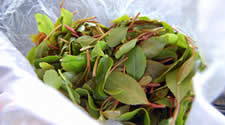 Muslim community leaders in Texas are protesting the latest outbreak of the perennial hype over the khat plant and its supposed links to terrorism. It began when a traffic stop near Houston last year turned up two men chewing the midly psychoactive but thoroughly illegal leaf. This sparked a year-long investigation involving local, state and federal agencies that has so far resulted in more than a half-dozen arrests. The
Muslim community leaders in Texas are protesting the latest outbreak of the perennial hype over the khat plant and its supposed links to terrorism. It began when a traffic stop near Houston last year turned up two men chewing the midly psychoactive but thoroughly illegal leaf. This sparked a year-long investigation involving local, state and federal agencies that has so far resulted in more than a half-dozen arrests. The  The herbal stimulant khat is to be banned by the British government—against the advice of its own
The herbal stimulant khat is to be banned by the British government—against the advice of its own 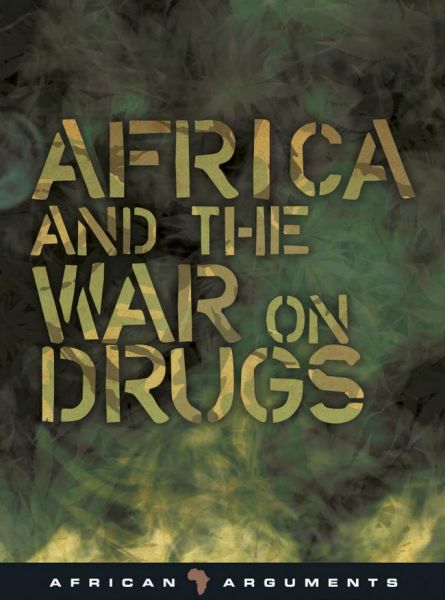 For those who have been wondering what the truth is behind the media sensationalism about global cartels establishing Africa as their new theater of operations, Africa and the War on Drugs by Neil Carrier and Gernot Klantschnig (Zed Books, London, 2012) clears the air in a welcome way.
For those who have been wondering what the truth is behind the media sensationalism about global cartels establishing Africa as their new theater of operations, Africa and the War on Drugs by Neil Carrier and Gernot Klantschnig (Zed Books, London, 2012) clears the air in a welcome way.





Recent comments
3 weeks 1 day ago
3 weeks 2 days ago
6 weeks 2 days ago
7 weeks 2 days ago
11 weeks 2 days ago
15 weeks 17 hours ago
19 weeks 22 hours ago
19 weeks 6 days ago
29 weeks 6 days ago
33 weeks 6 days ago